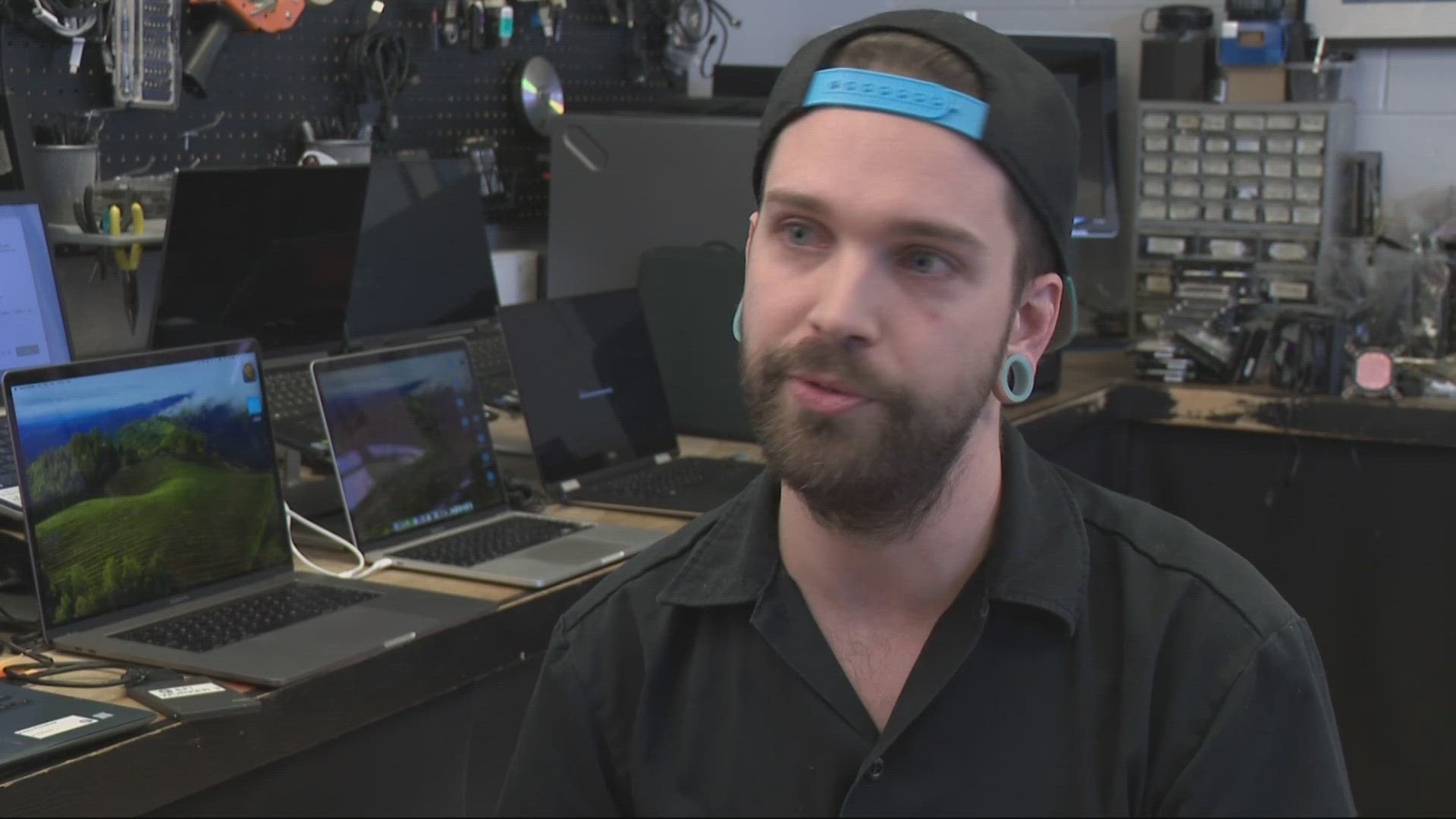SALEM, Ore. — A bill several years in the making cleared the Oregon Legislature this week, positioning the state to become a leader in protecting the right of consumers to repair their own purchased electronic devices. The Right to Repair Act passed with bipartisan support, first in the Senate last month, 25 to 5, and then in the House on Monday, 42 to 13. The bill's sponsor called it the country's most comprehensive legislation of its kind.
According to state lawmakers, Senate Bill 1596 will require manufacturing companies to make diagnostic tools, information, and replacement parts available to consumers and third-party repair shops so Oregonians can more affordably fix their phones, computers, appliances and other consumer electronics.
It's not the first time Right to Repair legislation has been brought up by lawmakers in Oregon, but the movement has gained more traction both in the state and nationwide. Oregon is the fourth state to pass a right-to-repair bill.
Romain Godin, who co-owns computer repair store Hyperion Computerworks in Portland, supports the legislation and testified in favor of it during a public hearing earlier this legislative session.
"People bring us technology problems," he said. "We connect them with technology solutions, freelance tech help, because there's not much of that available."
Godin's got the tools and the skills to fix a variety of electronics, but as an independent repair provider, he said he currently isn't always given all the necessary parts or even the instruction manual.
"There have been times where we're working on a very new device and there's no information about it. There's no documentation. Nobody's done a YouTube video on how it comes apart and maybe the design is a little weird," he said. "The document exists. It's just being deliberately withheld."
Withheld, he said, by certain consumer electronics manufacturers, creating a disadvantage for small businesses like his, or for handy consumers. Oregon's Right to Repair Act aims to close that gap.
"It's kind of the notion that manufacturers have an obligation to help us make the most of the devices that they're selling, and in order to achieve that, just making parts available, because everything's going to break some point," he said. "If a manufacturer has an authorized repair programmer or repair program of any kind that makes parts, and especially like documentation, how to do the repair, they're making that available to anybody, then they have to make it available to everybody."
Sen. Janeen Sollman, who sponsored the bill, said manufacturers can continue to offer in-house repair services or repairs through authorized dealers, and consumers will still be free to choose those options. But the manufacturers will need to make the necessary parts and documentation available so that small independent businesses in Oregon can offer the same services, or so individual Oregonians can do the repairs themselves.
She said it comes down to saving Oregonians money, but there's also an environmental side to the issue.
"If we're able to make phones last longer, then we're creating less waste," she said. "There's 170 computer chips in our cell phones. We need to think about the resources that we are utilizing in technology and how we need to save those resources."
Critics of the bill raised concerns about device safety and security earlier in the legislative session. John Perry, who works for Apple, testified at a hearing in February.
"It is our belief that the bill's current language around parts pairing will undermine the security, safety and privacy of Oregonians by forcing device manufacturers to allow the use of parts of unknown origin and consumer devices," he said at the time.
Sollman told KGW there are protections around safety, specifically considering sensitive data and information, written into the bill.
"We had community members that have been surveyed in Oregon and overwhelmingly 70% said they want access to repair items that they own," she said. "It's fear, uncertainty and doubt. [Critics] tend to want to give you scary scenarios... [but] we put protections in this bill around safety. We put it in there about trade secrets and making sure that those... that people didn't have to give up a personal code in order to have their phone fixed. We put that in there."
She said legislators also brought in representatives from Google, which manufactures cellphones and produces the Android operating system, and worked with the company to develop bill language that would avoid creating problems for manufacturers.

